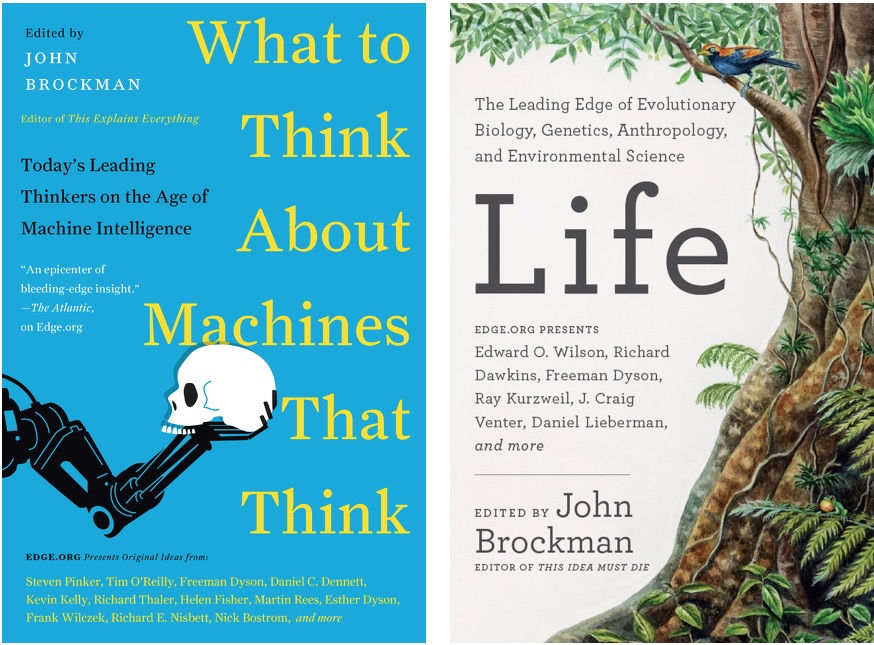Life
The "Best of Edge" Book Series
Pulitzer Prize winner EDWARD O. WILSON reveals what ants can teach us about building a superorganism—and, in turn, about how cells build an organism * Harvard University’s DANIEL LIEBERMAN reports on long-distance running and the evolution of the human body * The Selfish Gene author RICHARD DAWKINS and genetics pioneer J. CRAIG VENTER compare genes to digital information, and sketch the frontiers of genomic research * Yale evolutionary ornithologist RICHARD PRUM explains what bird mating rituals can teach us about the evolution of aesthetic beauty * Nobel Prize–winning chemist KARY MULLIS covers cutting-edge immune treatments for dangerous viruses * DAVID HAIG, professor of biology at Harvard, reports new findings on genomic imprinting: how inherited genes can be expressed differently depending on whether they come from the mother or father * Princeton physicist FREEMAN DYSONexplores whether the biological processes of life are analog or digital * Stanford professor of bioengineering DREW ENDY asks how we can make living organisms easier to engineer, and whether we should * Futurist and author of The Singularity Is Near RAY KURZWEIL describes new biotechnologies that have the potential to greatly expand the human life span . . . and more.


